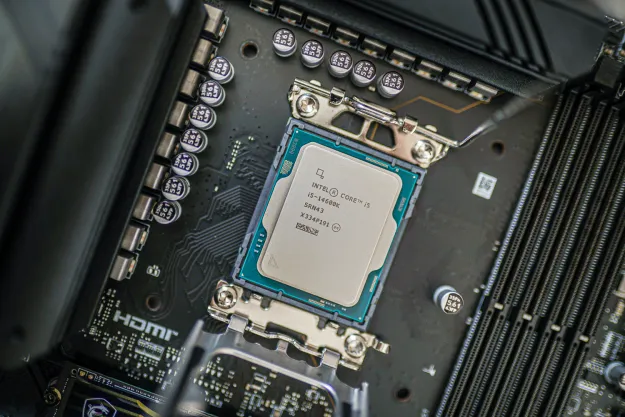In a blog post highlighting how advances in its processors have helped gamers, Intel announced that its next-generation desktop processor will be coming in early 2021. The 11th-gen processor is also known by its Rocket Lake code name, and will include some of the key features that Intel introduced in its 11th-gen laptop Tiger Lake processors, such as support for the faster PCIe 4.0 specification, and Wi-Fi 6 for wireless connectivity.
“I’m also happy to confirm that the next generation 11th-gen Intel Core desktop processors (code-named “Rocket Lake”) is coming in the first quarter of 2021 and will provide support for PCIe 4.0,” Intel vice president and general manager of the VR, gaming, and e-sports group John Bonini wrote in a blog post on Medium, noting that “gaming is in Intel’s DNA.”
The company’s announcement that Rocket Lake will make its way to gaming desktops comes in the middle of partner Nvidia’s GPU Technology Conference and ahead of rival AMD’s scheduled launch event for its next-generation Ryzen processors. Intel’s 11th-gen desktop processor will likely have to compete in the same space as the rumored Ryzen 5000 processors.

Neither Intel nor Bonini gave specifics about what to expect for its 11th-gen processors, but the company did highlight processor frequency for its 10th-gen lineup, so its next-generation silicon could once again offer faster base and clock speeds along with support for overclocking in a bid to appeal to gamers and creatives.
This would reinforce Intel’s lead in high-end gaming, as per-clock performance tends to matter more than the extreme core counts AMD provides. On the other hand, it doesn’t address AMD’s core count lead, which often makes AMD hardware a better value for productivity — and sometimes in midrange gaming rigs, too.
“Processor frequency remains a key consideration because many popular apps and high-performance games scale with frequency,” Bonini stated. “Intel’s current generation of processors — led by the Core i9-10900K on desktop and the Core i9-10980HK on mobile — achieves an industry-leading 5.3GHz.”
In addition to revealing a launch timeline for the 11th-gen desktop silicon, Intel highlighted its partnerships with “world-class developers and publishers” as part of its gaming focus. These partnerships, the company claimed, helps to optimize the performance of games and allows developers to build in new features ahead of a title’s release.
Editors' Recommendations
- AMD Zen 5: Everything we know about AMD’s next-gen CPUs
- Gamers are reportedly returning Intel Core i9 CPUs in droves
- Nice try, Intel, but AMD 3D V-Cache chips still win
- Reviewers agree: Intel’s latest chip is truly ridiculous
- Intel just launched the ‘world’s fastest’ CPU


